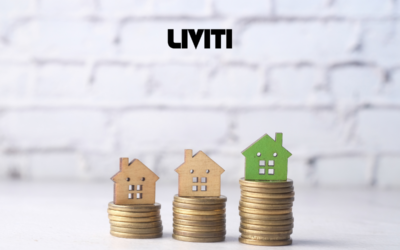When you hear the words “taxes” and “exciting” in the same sentence, you might be sceptical. But when it comes to investment property tax in Australia, understanding the tax implications can be an exhilarating part of your financial journey. It can turn your good investment into a great one.
If you’ve been scratching your head about how to navigate this, you’re in for a treat. We’ll unravel the complex world of investment property taxes, so you can maximise your returns.
What are the Main Types of Investment Property Taxes in Australia?
First, let’s go over the taxes you’ll encounter as a property investor in Australia:
1. Stamp Duty
Stamp duty in Australia is a state or territory-based tax imposed on various transactions, including property purchases. It’s important to note that each Australian state and territory has its own set of rules and rates for stamp duty, so the specifics can vary depending on where you’re buying property.
If you’re buying a property in Australia, you will likely have to pay stamp duty. The amount you’ll pay depends on factors like the property’s purchase price, whether you’re a first home buyer and the state or territory where the property is located.
It’s always a good idea to consult with a local expert or aproperty advisor like Liviti to get precise information and guidance on your specific circumstances.
How they are paid:
You’ll need to fill out the required stamp duty declaration forms. These forms can usually be obtained from the state or territory’s revenue office or website. Make sure to provide accurate information and details about the property transaction.
Depending on the state or territory, you can usually pay stamp duty through Electronic Funds Transfer (EFT), BPAY, Cheque or In-Person, depending on which state you are in.
When should you pay:
Stamp duty is typically paid before settlement, which is when the property officially changes hands. Your solicitor or conveyancer will ensure that all financial aspects of the property purchase, including stamp duty, are taken care of before settlement.
2. Income Tax
The rental income you earn from leasing your property is considered taxable income. However, you can deduct certain expenses incurred during the rental period, such as property management fees, maintenance costs, and interest on loans used to buy the property.
How they are paid:
This tax is paid through your annual income tax return, where you report your total income, including rental income.
3. Land Tax and Council Rates
Land tax is levied on the owners of the land, while council rates are local government taxes designed to help fund local services and infrastructure.
How they are paid:
Land tax is generally paid annually, although payment frequencies might differ. Council rates are typically payable quarterly, but this can also vary.
Details about land tax and council rates can be accessed from the local government or council websites of your specific area. Check with your local state or territory revenue office for land tax rates.
4. Capital Gains Tax (CGT)
When you sell a property at a price higher than its “cost base,” you incur a capital gain, which is subject to Capital Gains Tax. The “cost base” includes the amount you paid to acquire the property and other related expenses such as stamp duty, legal fees, and improvement costs.
How they are paid:
You will report the capital gains in your annual tax return. The amount of CGT you need to pay will be calculated based on the total capital gain, your income, and other factors.
The CGT rate and allowances can change, and they depend on a range of factors, including the region you are in. Therefore, it is recommended to consult the tax authority websites of your respective region for the most current information. In Australia, you can refer to the Australian Taxation Office for CGT details.
Learn more about how Capital Gains Tax works for Off-The-Plan Properties.

What are the Investment Property Tax Deductions You Can Claim?
Depreciation
One of the most exciting aspects of Australian property tax laws is the ability to claim depreciation on your investment property tax.
The benefits:
- Allows write-off of property’s building structure and fixture decline value over time
- Offers tax deductions
- Reduces taxable income
- Puts more money back into your pocket
Read more about Depreciation here
Positive Gearing
Positive gearing occurs when the rental income from an investment property surpasses the combined total of home loan repayments and related property expenses, resulting in a positive cash flow.
The benefits:
- Possibility of early retirement due to enhanced income
- Opportunity to invest in additional avenues
- Accelerated loan repayments
- Increased expenditure on personal luxuries, such as holidays
Negative Gearing
Negative gearing has been a hot topic in Australia for years. It occurs when the costs to maintain your investment property tax (mortgage interest, repairs, and management fees) exceed the rental income.
The benefits:
- Allows for the deduction of property maintenance loss against other income
- Reduces overall tax liability
- Despite initial losses, potential benefits include:
- Long-term capital growth
- Immediate tax advantages
Read more about positive gearing & negative gearing here.
Strata Fees and Council Rates
If your property operates under a strata title, often seen with apartments, you can claim your body corporate fees as a tax deduction. Similarly, expenses incurred for council rates, and utility bills, including water, energy, gas, and electricity, can be leveraged as deductions when filing your taxes.
Advertising for Tenants
Securing tenants might necessitate an initial investment in advertising, which can encompass costs for an agent, photography, or online listings.
The benefits:
- Expenditures are tax-deductible
- Reduces taxable income
- Enhances property appeal and visibility for prospective tenants
Offsetting Capital Gains
Selling one investment property with a substantial gain? Consider selling another that’s not performing well to offset the capital gains. By balancing out your gains and losses, you can reduce your overall CGT.
Tax-Deductible Expenses
As a property investor, you’ll incur various expenses like repair costs, property management fees, and mortgage interest. The good news is that many of these are tax-deductible, thereby reducing your taxable income. Even expenses related to visiting your investment property for inspection can be deducted. Every dollar you can legally write off is another dollar saved!
SMSF and Property Investment
Self-Managed Super Funds (SMSFs) offer a unique environment for investment property taxes. Earnings within an SMSF are generally taxed at a concessional rate, which can be significantly lower than personal income tax rates. However, the regulations surrounding SMSFs and property investments are complex, so professional advice is crucial.

Practical Steps for Optimising Your Investment Property Tax Position
Navigating property investment successfully involves keen attention to optimising your tax position. Engaging a tax advisor with expertise in property can guide you to leverage better returns. Coupled with vigilant record-keeping and a year-round focus on tax obligations, you can make informed decisions to benefit your investment portfolio.
- Consult a Tax Advisor
Specialised tax advice is critical for property investors. A tax advisor who understands property investment can provide insights into optimising your returns.
- Good Record-Keeping
Keep accurate and detailed records of income, expenses, and investments related to the property. This will make tax filing smoother and ensure you don’t miss out on any deductions.
- Annual Tax Planning
Instead of just thinking about taxes at the end of the financial year, keep them in mind throughout the year to make informed decisions that optimise your tax position.
- Legal Tax Minimization
Always aim to minimise your tax liability within the confines of the law. Aggressive tax avoidance can lead to significant penalties.
FAQ for Investment Property Tax
1. What are the main tax deductions available for property investors?
The primary tax deductions you can explore include mortgage interest, property taxes, operating expenses, and depreciation. Remember to keep meticulous records to take full advantage of these deductions.
2. Can I claim depreciation on my investment property tax?
Yes, you can claim depreciation on the building itself and on the assets within the property, such as appliances and fixtures, provided the property is income-generating. The specifics can vary, so consulting a tax advisor is recommended.
3. How does capital gains tax work with investment properties?
Capital gains tax applies when you sell an investment property for more than you paid. The rate can vary based on numerous factors, including the duration you held the property. It’s advisable to consult with a tax advisor to understand the exact implications.
4. Are rental incomes from investment property taxed?
Yes, rental incomes are generally considered taxable income. However, you can offset this by claiming various deductions available to property investors, effectively reducing your taxable income.
5. How can I legally minimise my investment property taxes?
To legally minimise your tax liability, consider strategies such as leveraging tax deductions effectively, engaging in tax-positive investments, and utilising tax deferment options. Always ensure to adhere to the legal frameworks governing property investment taxation.
6. Should I engage a tax advisor for managing investment property taxes?
Engaging a tax advisor, especially one specialising in property investments, is highly recommended to help you navigate the complex tax landscape, identify all possible deductions, and optimise your tax position through legal avenues.
Bottom Line
The Path to Bigger Returns
So, there you have it: a whirlwind tour of how understanding investment property taxes can supercharge your property investment strategy in Australia. With elements like depreciation, negative gearing, and tax-deductible expenses, your tax obligations could actually become an exciting and beneficial part of your investment journey.
If you approach this subject with the right mindset and seek proper advice from the right experts, you’ll find that the path to bigger returns does, indeed, start with understanding your taxes. Happy investing, and even happier tax planning!




